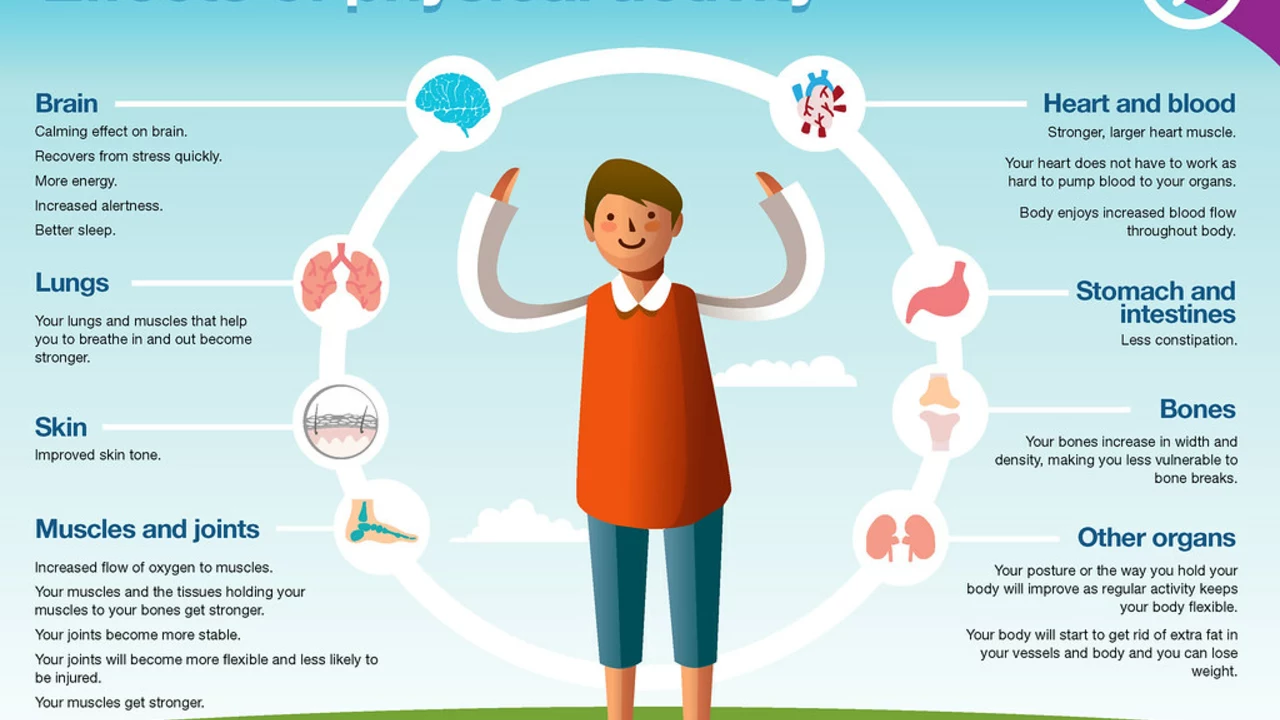Understanding Rickets: A Brief Overview
To fully comprehend the relationship between rickets and exercise, let’s first shed some light on what rickets is. Rickets is a bone disorder that primarily affects children. It’s characterized by weak or soft bones, stunted growth, and in some severe cases, skeletal deformities. Rickets is caused by a deficiency in vitamin D, calcium, or phosphate — nutrients that are essential for healthy bone development. The condition is preventable and can be treated with supplements and dietary changes.
Recognizing the Symptoms of Rickets
Early detection of rickets can make a significant difference in a child's life. The symptoms may vary depending on the severity of the condition, but some common signs include delayed growth, pain in the spine, pelvis, and legs, muscle weakness, and skeletal deformities like bowed legs or a pigeon chest. If the condition is left untreated, it can lead to complications such as dental problems, seizures, or even heart failure.
Importance of Vitamin D, Calcium, and Phosphate in Bone Health
Vitamin D, calcium, and phosphate are essential nutrients for bone health. Vitamin D helps the body absorb calcium and phosphate from the food we eat. These minerals are then used to build and maintain strong bones. When a child's diet lacks these nutrients, their body may fail to develop new bone, leading to soft and weak bones, and ultimately rickets.
Role of Physical Activity in Bone Health
Physical activity plays a pivotal role in maintaining bone health. Exercise, particularly weight-bearing activities like running, jumping, or resistance training, helps stimulate bone formation. This is crucial for children as their bones are still growing and developing.
Rickets and Exercise: The Connection
Rickets and exercise are interlinked. Regular physical activity can aid in preventing rickets by promoting the absorption of calcium, which is essential for bone formation. Plus, exercise helps in strengthening the muscles that support the bones, thus reducing the risk of bone deformities associated with rickets.
Best Exercises for Bone Health
The right kind of exercises can help in maintaining bone health and preventing conditions like rickets. Weight-bearing exercises like walking, running, jumping, or resistance training are particularly beneficial. These exercises force the body to work against gravity, promoting bone growth and strength.
Addressing Dietary Needs for Bone Health
Besides exercise, diet plays a vital role in maintaining bone health and preventing rickets. A diet rich in vitamin D, calcium, and phosphate is essential. This includes foods like dairy products, fish, eggs, and fortified cereals. Additionally, getting enough sunlight exposure can help the body produce vitamin D naturally.
Medical Treatment for Rickets
If your child is diagnosed with rickets, your healthcare provider will likely prescribe supplements containing vitamin D, calcium, or phosphate. In severe cases, surgery may be required to correct bone deformities. Remember, early detection and intervention can prevent complications and ensure a healthy future for your child.
Preventing Rickets: A Holistic Approach
Preventing rickets requires a comprehensive approach that includes a balanced diet, regular exercise, and adequate sunlight exposure. Regular health check-ups can also help in early detection and treatment of the condition.
Conclusion: The Vital Role of Exercise in Bone Health
In conclusion, exercise plays a crucial role in maintaining bone health and preventing conditions like rickets. It not only helps in promoting bone growth but also strengthens the muscles that support the bones. Combined with a balanced diet and adequate sunlight exposure, exercise can ensure a healthy future for your child's bones.


Hi, I'm Caden Lockhart, a pharmaceutical expert with years of experience in the industry. My passion lies in researching and developing new medications, as well as educating others about their proper use and potential side effects. I enjoy writing articles on various diseases, health supplements, and the latest treatment options available. In my free time, I love going on hikes, perusing scientific journals, and capturing the world through my lens. Through my work, I strive to make a positive impact on patients' lives and contribute to the advancement of medical science.